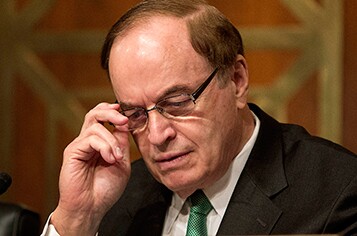WASHINGTON — All eyes will soon be on Mark Calabria.
The Trump administration’s nominee to serve as director of the Federal Housing Finance Agency, Calabria is set to testify Thursday before the Senate Banking Committee. The nomination hearing could provide an important window into the White House's plans for a future housing finance system, including how reforms might be carried out.
Senators almost certainly will grill Calabria on what he knows about an administrative framework that acting FHFA Director Joseph Otting has promised is forthcoming, but he will likely have to convince lawmakers that Congress still has a role in reforming the government-sponsored enterprises if he hopes to secure his confirmation.
Calabria will also have a tall order in tempering past criticisms of Fannie Mae and Freddie Mac, especially if the administration ultimately seeks to recapitalize the GSEs under his watch. Before joining the Trump administration as Vice President Mike Pence’s chief economist, Calabria was the director of financial regulation studies at the Cato Institute, where he regularly advocated for constraining the footprint of Fannie and Freddie.
"As the members of the Committee are perhaps aware, I have an extensive record of writings in the area of mortgage finance. I have on a few occasions expressed strong opinions on the history and future of our mortgage finance system," Calabria said in his written testimony,
"Despite that frustration, I want to very clearly state to this Committee, that if confirmed, my role as Director of FHFA is to carry out the clear intent of Congress, not to impose my own vision," he added.
Following are five key questions to consider ahead of the hearing.










